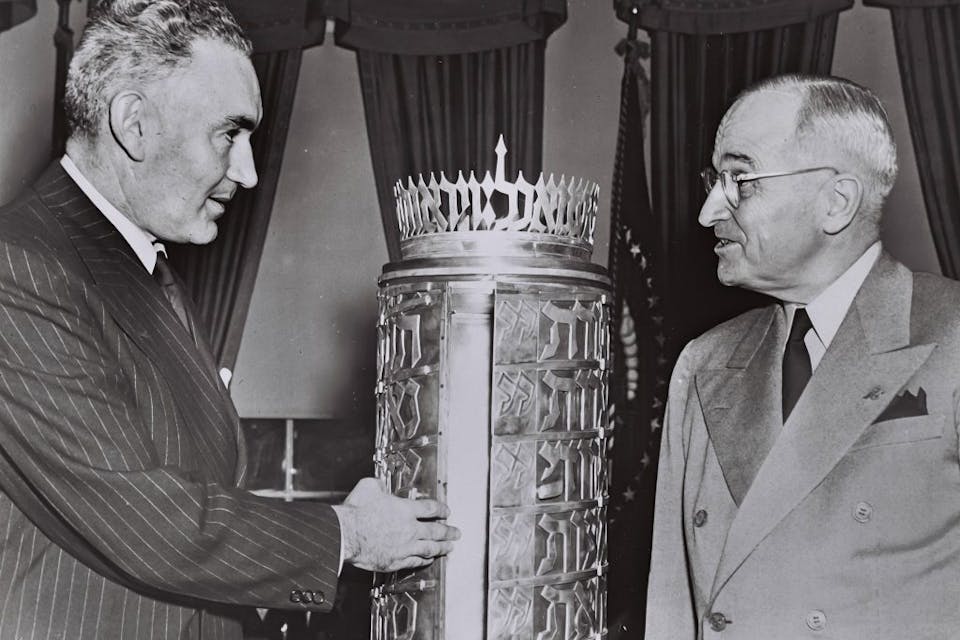
October 1, 2019
‘I am Cyrus’
By Rabbi Meir SoloveichikWill Americans continue to listen to the Bible, as Harry Truman did?
During World War I, Lieutenant Harry Truman was assigned to run the regimental canteen at an Army training camp in Oklahoma. To make it a financial success, Harry took on a partner, Sergeant Edward Jacobson. For Truman, his biographer David McCullough notes, Jacobson’s Jewishness was a plus. “I have a Jew in charge of the canteen by the name of Jacobson and he is a crackerjack,” he wrote his wife Bess. After six months, business was extraordinarily successful, and some of the other officers began teasing Harry, referring to him as a “lucky Jew” and “Trumanheimer.” McCullough reports that to this Truman replied: “I guess I should be very proud of my Jewish ability.” After the war, Truman and Jacobson went into the haberdashery business together. It failed, but they remained lifelong friends.
Three decades later, Truman was entering the third year of his unexpected presidency. The United Nations had approved the partition of Palestine into independent states, but the American delegation, under the direction of Secretary of State George Marshall, sought to revert back to a UN trusteeship for the region. Truman revered Marshall more than any other man alive and, feeling that many Zionist leaders had been disrespectful to him, refused to meet with any Jewish representatives. That included Chaim Weizmann, the great scientist and leading international figurehead of the cause of Jewish statehood. Eddie Jacobson, the only Jew with walk-in privileges to the White House, was asked to plead on Weizmann’s behalf. He was allowed entry to the Oval Office on the express condition that he not bring up Palestine.
Jacobson, of course, immediately brought up Palestine. Truman, Mccullough recounts, complained bitterly of the abuse he had experienced, of how “disrespectful and mean” certain Jewish leaders had been to him. Jacobson, in return, sadly reflected that “my dear friend, the President of the United States, was at that moment as close to being an anti-Semite as a man could possibly be.” Then, pointing to Truman’s statuette of Andrew Jackson, Jacobson took a different tack: